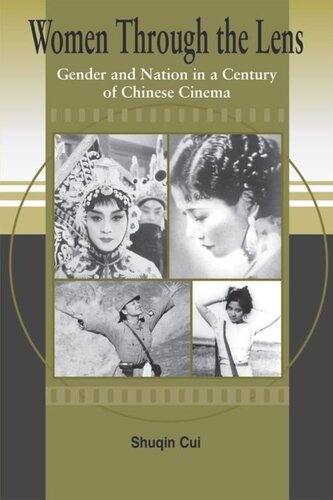

Most ebook files are in PDF format, so you can easily read them using various software such as Foxit Reader or directly on the Google Chrome browser.
Some ebook files are released by publishers in other formats such as .awz, .mobi, .epub, .fb2, etc. You may need to install specific software to read these formats on mobile/PC, such as Calibre.
Please read the tutorial at this link: https://ebookbell.com/faq
We offer FREE conversion to the popular formats you request; however, this may take some time. Therefore, right after payment, please email us, and we will try to provide the service as quickly as possible.
For some exceptional file formats or broken links (if any), please refrain from opening any disputes. Instead, email us first, and we will try to assist within a maximum of 6 hours.
EbookBell Team

4.7
96 reviewsWomen Through the Lens raises the question of how gender, especially the image of woman, acts as a visual and discursive sign in the creation of the nation-state in twentieth-century China. Tracing the history of Chinese cinema through the last hundred years from the perspective of transnational feminism, Shuqin Cui reveals how women have been granted a "privileged visibility" on screen while being denied discursive positions as subjects. In addition, her careful attention to the visual language system of cinema shows how "woman" has served as the site for the narration of nation in the context of China's changing social and political climate.
Placing gender and nation in a historical framework, the book first shows how early productions had their roots in shadow plays, a popular form of public entertainment. In examining the "Red Classics" of socialist cinema as a mass cultural form, the book shows how the utopian vision of emancipating the entire proletariat, women included, produced a collective ideology that declared an end to gender difference. Cui then documents and discusses the cinematic spectacle of woman as essential to such widely popular films as Chen Kaige's "Farewell My Concubine" and Zhang Yimou's "Ju Do." Finally, the author brings a feminist perspective to the issues of gender and nation by turning her attention to women directors and their self-representations.